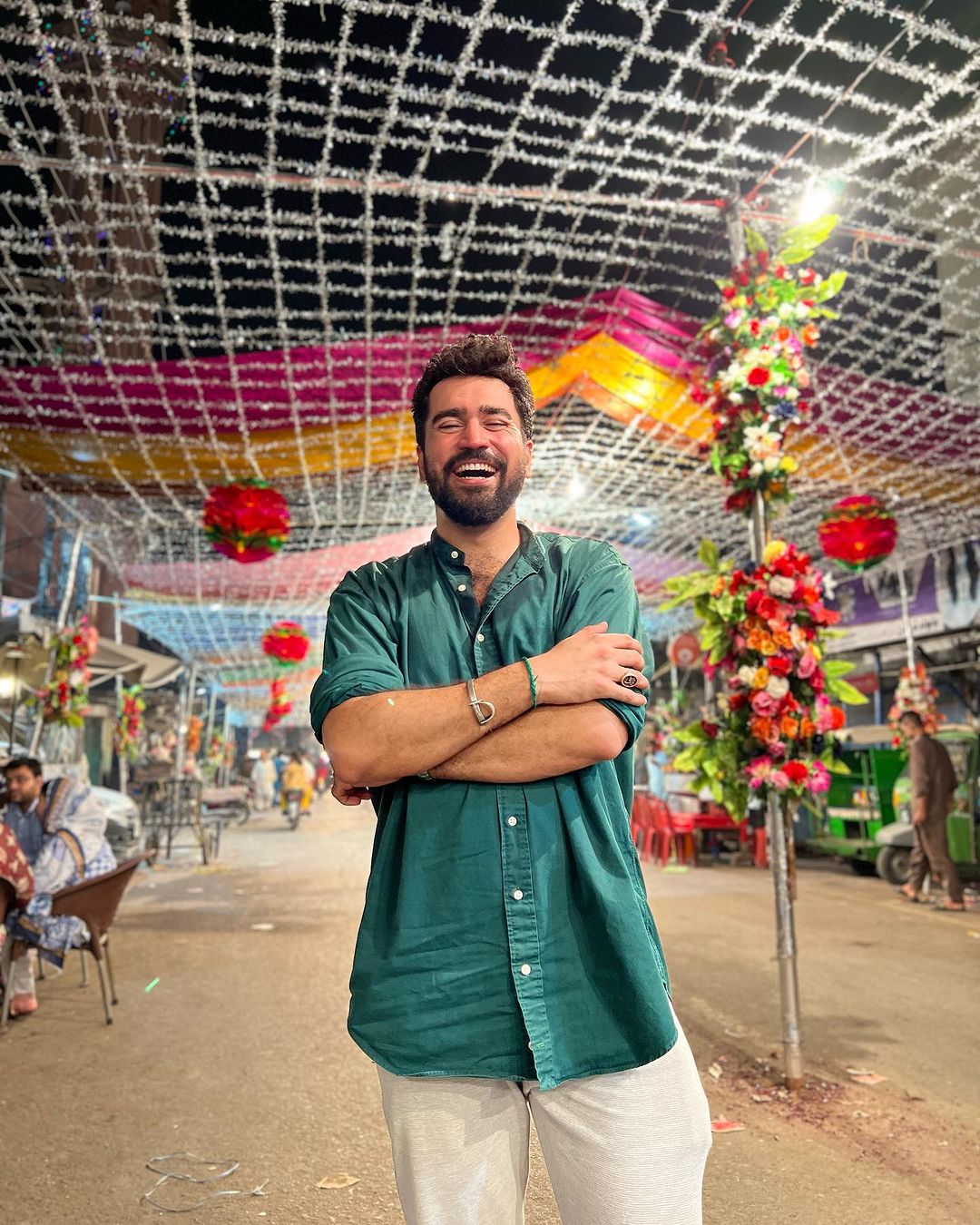How often do we witness Harvard students returning to Pakistan? How frequently do we observe individuals prioritizing the greater good of their nation over their interests? But among this group of people, Ghazi established that he has always been different from others.
It all began when Ghazi Taimoor found a lost wallet belonging to an Indian named Rahul in London. He made a heartfelt effort to locate the owner and successfully returned the wallet, Rahul was moved to tears by the gesture. When asked why he didn’t turn the wallet into the police, Ghazi explained:
“Losing something valuable is a distressing experience for everyone.”
“I could relate to Rahul’s pain, so I felt it was my mission to return the wallet directly.”
Ghazi Taimoor earned admiration across borders by bridging the gap between people from different countries, conveying a powerful message of peace, love, and respect through simple acts of compassion.
Ghazi’s empathy and passion led him to understand the importance of education. He believes it is vital for everyone. This ideology was deeply influenced by his mother, who taught underprivileged students in Lahore.
“[…] We believed that by educating these students, we could help them achieve success. However, our education sector is divided and fragmented.”
His unique ideology led to the literary development of many underprivileged students. After completing his master’s degree from Harvard, Ghazi returned to Pakistan to work in education. He currently works for a nonprofit organization and private institution to help train social and emotional skills.
He further talks about,
“Incorporating empathy, tolerance, and acceptance of others into their curriculum.”
Committed to this idea, Ghazi founded “The Learning Group.” His struggle and ideology towards the youth highlight the importance of the correct upbringing of future generations for the development of our country.
Along with students, Ghazi also aspires to create opportunities for unemployed young people. He said,
“They are frustrated because they lack opportunities to express themselves”
and also, it’s crucial to create local opportunities for young people to stop people from moving abroad and ensure their talents are utilized for our country’s benefit.
Another reason Ghazi returned to Pakistan was his deep love for Lahore.
“I fondly remember visiting my uncle’s house in Mochi Gate. […] The sense of connection I missed in London ultimately brought me back to Lahore.”
To share this passion, Ghazi launched the “Lahore ka Ravi” campaign, offering walks and tours that highlight the city’s cuisine, history, and artistic heritage. Ghazi has always been a man of great integrity, deep connection, and respect for his roots.
Ghazi launched “The Azadari Project” to document Azadari practices across South Asia, aiming to create an extensive online archive of Azadari traditions. Through videos of Muharram processions in Lahore, he narrates their history and significance to promote understanding and unity. He shares his family’s principle:
“It’s important to love Hazrat Imam Hussain (A.S) above all sectarian differences.”
The project’s goal is to spread Hazrat Imam Hussain’s (A.S) message and the lessons from Karbala, reflecting his learned humility, and remove differences amongst different religious sects in Pakistan.
Coke Studio approached Ghazi, saying,
“Your act of kindness and connection with our message of uniting hearts truly resonated with us.”
Following this, Ghazi collaborated with Coke Studio, interacting with artists like Abida Parveen, Justin Bibis, and Sajjad Ali. Despite his success, he remained true to his character. Ghazi still harbors regret, despite the fact that he got back to work for a better Pakistan right away:
“I regret not starting this work earlier because I believe it could have made a significant change in Pakistan.”
What then does his life story teach us? That anybody can make a difference and it’s never too late. Ghazi Taimoor is a change we all need. He is the change that Pakistan as a whole need, and everyone ought to follow his constant effort and commitment. Working together under the guidance of individuals such as Ghazi will transcend cultural, sectarian, and ideological divides. Let us embrace differences and foster unity. It’s never too late.
Follow Us
